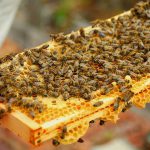
Unity in agriculture?
Our society is divided. This was identified by the National Planning Commission as one of the country’s challenges. Although there are times when there are bridges and we fly a common flag, the issues coming from our past present a great challenge to agriculture.
We might produce the best grapes and have amongst us some of the best farmers in the world, but if there is division in the sector then at best this country will only be a mediocre player in world markets. (At the time of writing, some from within the country are calling for a boycott of our own fruit!) Nothing significant happens without unity, said the writer Osho, and he could well have been commenting on the state of this country.
How do we get there? Is it possible?
The same Bureau for Food and Agricultural Policy (BFAP) report which found that the R150 per day wage demand would render most farms unprofitable also found that even on R150 a day it would still be difficult for those workers to buy nutritious food. The food economy that we have built is unkind to both farmer and farmworker. Doesn’t that means that farmer and farmworker are on the same side?
Emerson called producing food the glory of the farmer. “The food which was not, he causes to be”. Farmers take risks to do this – economic, climate and socio-political being amongst them. If the food economy rewarded farmers more for their produce, the farmer would be able to pay a better wage. The dairy farmer received around R3 for that litre of milk you paid R9 for!
Some say that the tension leads to a vibrant, democratic society. True, if there is a shared awareness of our oneness and a sense that we are all in the same boat. In such a continuum, although there might be conflict there also comes resolution. No one gets exactly what they want, but there is give-and-take all around. The leaders are shrewd and get the best deal for their constituencies – without killing the goose from which the golden egg is laid.
The major challenges to agriculture in 2013 will be the ones stemming from our divided past. We need to do our damnest to ensure that our land reform and empowerment programmes succeed.
But let us remember that there are also deep fault lines running through the economy, specifically the food economy. And these fault lines run underneath all we are trying to accomplish in agriculture and in rural development. This presents the strongest case for us to remember kindness and patience as we pursue our goals.



Share this article





